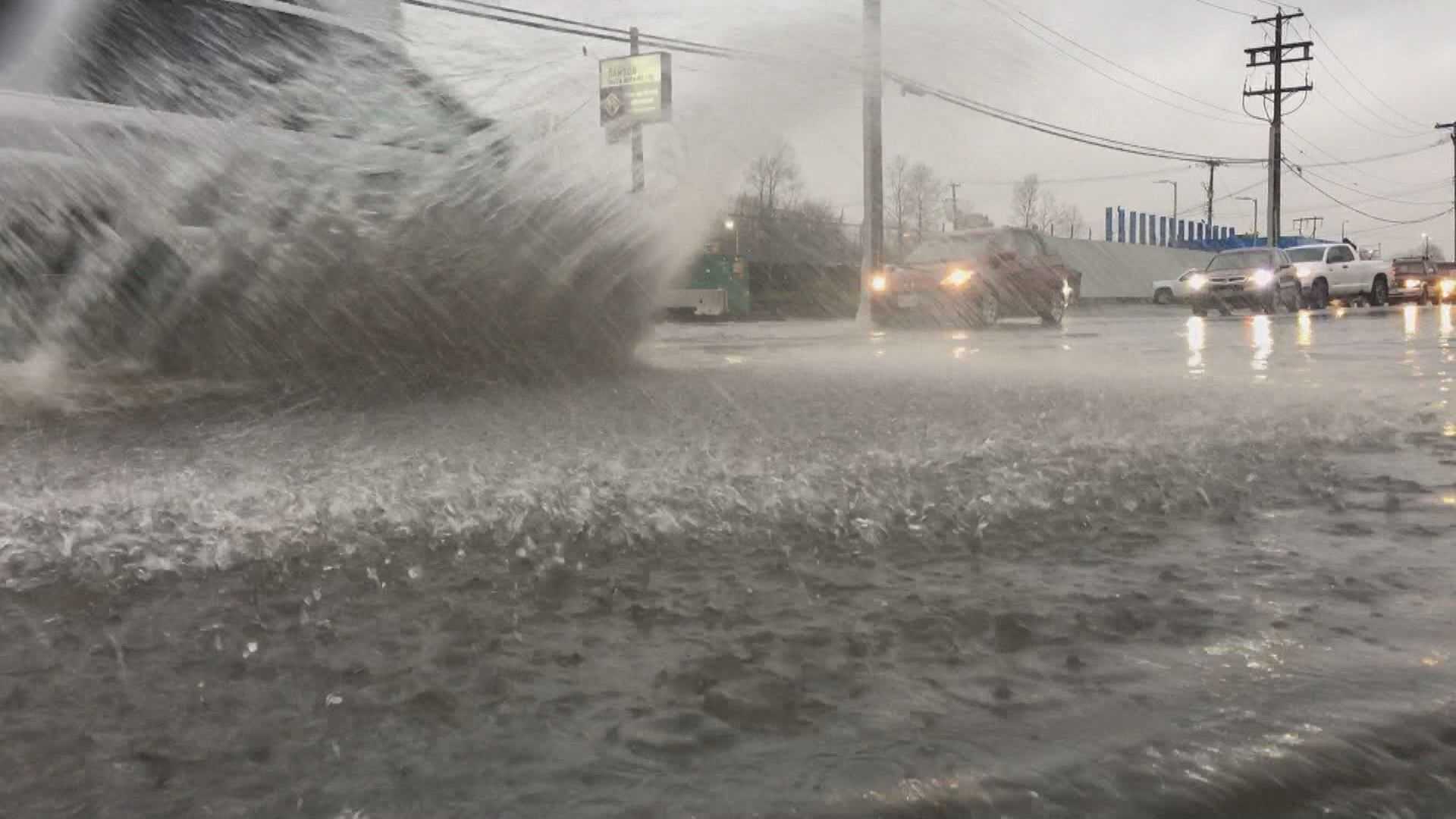News
Atmospheric River to Bring Heavy Rain and Strong Winds to British Columbia

An atmospheric river system is poised to hit the south coast of British Columbia, potentially impacting the provincial election weekend, according to Environment Canada. The agency has described it as “the first significant storm of the season,” expected to drench the area with up to 200 millimetres of rain.
The weather system is forecasted to make landfall around noon on Friday, with heavy rains persisting through Sunday. Environment Canada has issued warnings covering Metro Vancouver, the Fraser Valley, Howe Sound, Whistler, the Sunshine Coast, and parts of Vancouver Island. Coastal mountains in particular are anticipated to receive up to 100 millimetres of rain, while parts of Vancouver Island could see accumulations as high as 200 millimetres.
In addition to the heavy rainfall, the storm is expected to bring strong winds, with gusts reaching up to 80 kilometres per hour in areas close to the water. These conditions could lead to swollen rivers and increase the risk of rockfalls, landslides, and power outages due to downed trees.
WATCH: Atmospheric rivers, explained: The phenomenon known as atmospheric rivers became a pertinent topic after record-setting floods hit British Columbia in November 2021. Meteorologist Johanna Wagstaffe has previously explained that these weather systems are not uncommon along the North American west coast.
A separate weather statement has been issued for Fort Nelson, predicting the area’s first “substantial” snowfall of the season. The region could see between 10 to 20 centimetres of snow by the end of the weekend.
Michael Kuss, a meteorologist for 1130 NewsRadio, detailed the weather dynamics of the approaching storm. He described a low-pressure system drawing “a long train of rain” towards B.C.’s south coast. “The duration of the rain is more significant than the intensity,” Kuss noted, mentioning the rain will likely persist steadily for at least 36 hours.
Environment and Climate Change Canada reiterated warnings of “prolonged heavy rain and strong winds,” especially on Saturday. Areas expected to feel the brunt include not only the Lower Mainland but also Howe Sound, Whistler, and most parts of Vancouver Island.












